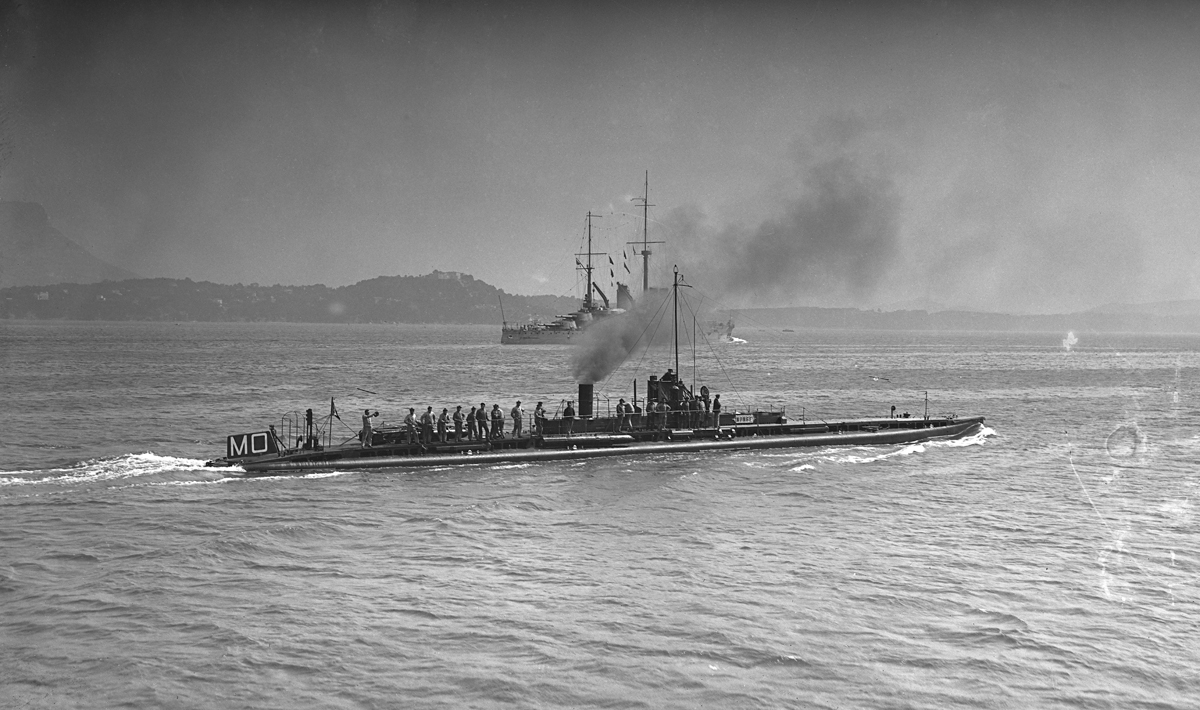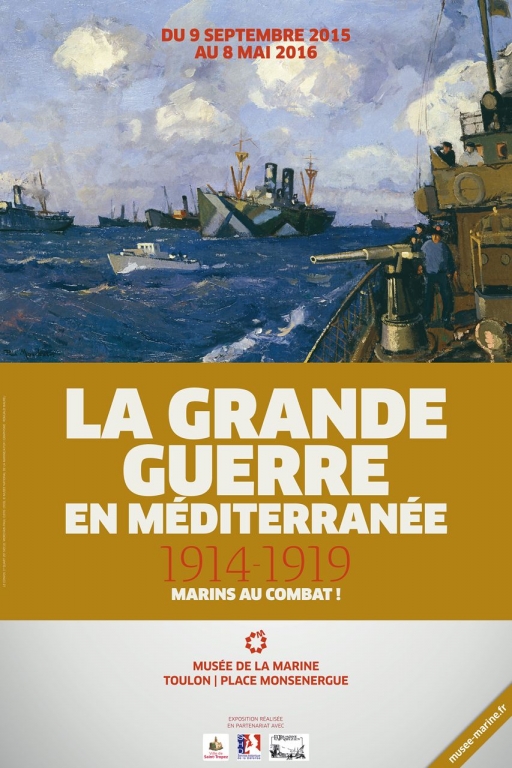A new exhibition at France’s National Maritime Museum in Toulon invites visitors to discover the ‘still unknown’ role of sea power during the First World War.
La Grande Guerre en Méditerranée – the Great War in the Mediterranean – focuses in particular on the Gallipoli campaign.
The offensive against Turkey in 1915 started as a naval operation by France and Britain to take control of the Dardanelles Strait and open a supply route to Russia.
A French battleship, Bouvet, was among the Allied ships sunk during the unsuccessful attack of March 1915, which was followed weeks later by the troop landings on the Gallipoli peninsula.
The Musée National de la Marine says its exhibition pays tribute to the courage of all First World War sailors. Many of those from France were based in Toulon, home of the country’s Mediterranean Fleet.

The French submarine ‘Monge’, Toulon (1908-1915)
(Image © Musée national de la Marine © Droits Réservés/Rights Reserved)
The war at sea is still less known than the big land offensives and the hardships of the trenches, the museum suggests, but the part played by the sailors of the naval, merchant and fishing fleets was was ‘far from negligible.’
“Mastery of the seas was crucial for France and Britain in blockading Germany and its allies, ferrying troops from the colonies and allied countries, and maintaining supplies of equipment and food,” it explains.
The stories of the sailors who fought in the Mediterranean will be told using newspapers of the time, crew lists and other official documents, models, photos, posters, paintings and uniforms.
‘La Grande Guerre en Méditerranée’ – the Great War in the Mediterranean – opened at the Musée national de la Marine in Place Monsenergue, Toulon, on September 9th 2015. It runs until May 8th 2016.
Source: Musée national de la Marine, Toulon
Images: Exhibition poster © Romuald Maurel – ‘Le Convoi’ Paul Morchain © Musée national de la Marine/A.Fux; Submarine ‘Monge’ Toulon (1908-1915) © Musée national de la Marine © Droits Réservés/Rights Reserved
Posted by Peter Alhadeff, Centenary News
